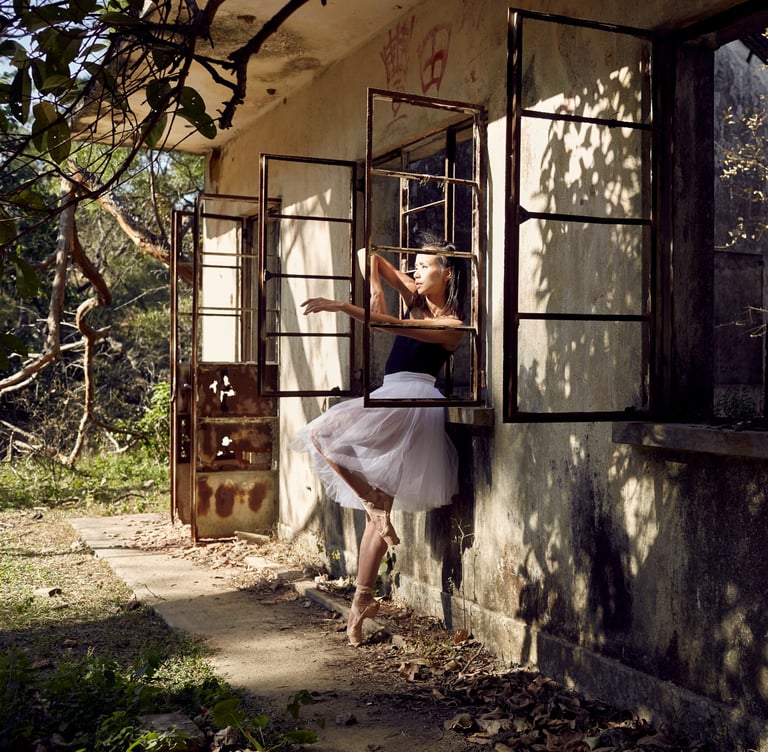They Just Want to Be Seen Not Scored: Why Guidance Beats Pressure
Let them grow by being seen, not managed.
DANCE
6/26/20253 min read


Showing Up for a New Life
During a recent trip to Hong Kong, I met a childhood friend's baby. It's always extra special when it's someone you grew up with, who wanted a baby, and you know the parents are equipped to be the best caregivers. Baby was around 2 months old when I dropped by to welcome his arrival to the world. I forget how tiny they are, and didn't dare hold him.
While motherhood is not in the cards for me in this lifetime (by choice), eighteen years of teaching children have taught me a thing or two about caregiving, development, and what young people need to feel safe in the world. The motherly instinct still kicks in, especially around kids, which I credit to years of witnessing their unfiltered honesty and the sacred, messy process of growing up.
Baby was super expressive, making a lot of faces while I was talking to him. At some point, he started getting fussy and was looking uncomfortable. "I know, it's very hard being here in this place called Earth. It's okay." Then he was back to being his calm self.
And yet, before children even arrive on this planet, expectations start piling up.
Why So Many Expectations?
I will never understand the amount of expectations parents place on their children, even before birth. Culturally, some prefer sons over daughters for the sake of lineage. Then you have dysfunctional families that see their children as extensions, and that’s where the expectations get loaded on. When children don’t pick the right profession, make the salary, or earn the title, it somehow reflects poorly on the family.
When Love Feels Like a Performance Review
In those environments, love feels transactional. Approval becomes a reward system, based on obedience, success, or silence. That’s not parenting. That’s project management. And when a child starts to believe their worth is tied to what they achieve or how well they conform, it chips away at their sense of self. I’ve seen this in students. The fear of disappointing their families speaks louder than their own desires.
Teaching in a Pressure Cooker
I teach in the San Francisco Bay Area, where the pressure to perform starts way too young. I’ve seen parents, who truly mean well, want their child to place higher in competitions so badly that it turns into a numbers game. Not a supportive space. The micromanaging, the hovering, the obsession with being the best doesn’t just blur the line between parent and child. It completely wipes it away.
The Magic of Letting Go
Most of the students I coached were between 9 and 17. Some of them I worked with through those awkward, pivotal tween years. That’s when kids start figuring out what they like, what they don’t, and what they actually want. A lot of them didn’t want their parents in the rehearsal space. They just wanted a little room to breathe, to dance, to move without the gaze of expectation.
Honestly, those were the most magical moments for me. Not because they danced better without anyone watching, but because I got to actually see them. Hear their thoughts through movement, their choices, their improvisation. For that one hour, they were just themselves. And that’s where the real growth happens. Not just as dancers, but as people figuring out how to take up space.
Some Expectations Are Fine, But...
This isn’t to say all expectations are bad, or that guidance has no place. No one’s perfect. Parents aren’t either. Sometimes kids need a gentle push or structure to help them step into something bigger than they imagined for themselves. But that kind of guidance only works when it’s grounded in listening. In really seeing your kid.
It takes time and presence to notice a child’s strengths, weaknesses, preferences, and pace. Without that, expectations start to sound more like projections. And projections drown out a child’s ability to choose, to reflect, to trust themselves.
Being Seen, Not Scored
Guidance is not control. Presence is not performance. And parenting, or any kind of caregiving, isn’t about turning someone into a version of yourself. It’s about meeting them where they are, with curiosity, with softness, and being willing to figure it out together.
The most powerful caretakers I’ve seen, whether they are teachers, parents, or mentors, are the ones who make space instead of giving orders. The ones who ask, not demand. The ones who see kids as already whole, not unfinished projects.
All we want during birth is a healthy mom and baby. Afterwards, we hope for a happy, healthy child. That hope shouldn't stop at birth. It should carry through their entire life.
That day, sitting beside a baby who didn’t need to be fixed or entertained, just heard, reminded me how simple, and how radical, it is to offer presence instead of pressure.
S.
Photography by Gareth Brown
